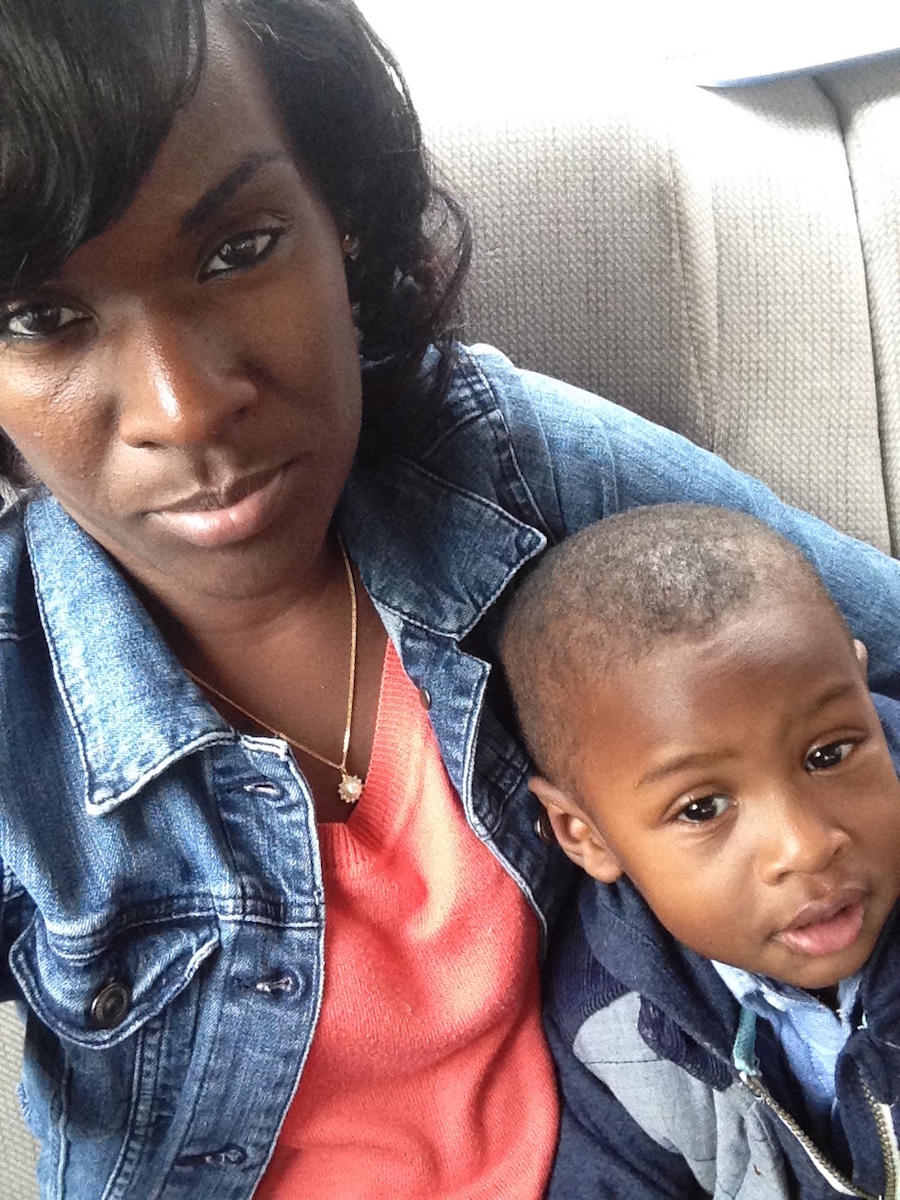I Am A Popeye's Employee. I Work Hard And I Obey The Law. It Is Still Not Enough.
By:
Shymara Jones is a fast food and retail worker in Philadelphia and the mother of a two-year old son. She is a leader of the fast food worker movement in the city and her store. In July, she traveled to Chicago to take part in the first ever national fast food worker convention. In September, she and 10 others were arrested protesting for $15/hr and a union outside a Philadelphia McDonald's. Follow her on Twitter at @Cocochanel_93
Two weeks ago, I went on strike from my job at Popeye’s for the third time this year. In May, when I walked off the job for the first time, I was all alone. This time, five of my co-workers joined me. Our movement is growing, and it’s growing fast. Why? Because workers are sick. Sick of living on poverty wages, sick of schedules that change every week or even last minute, sick of policies that don’t respect us. Even though I work hard, I make $7.60 hour after six years at the same Popeye’s. Six years! People ask us if we’re scared to go on strike, but the truth is that we’re scared of making wages like this for six more years.
Some say we should get better jobs or go back to school. I’ve done both. I work at second job at Forever 21, and before that, I worked at the airport. I work seven days a week to get by and to support my son Jaden. I went to school to be a medical assistant, but I haven’t been able to find a job in that field. Our economy is recovering so slowly, and fast food and retail jobs are some of the only ones that are really growing.
People on TV talk about “personal responsibility” all the time. But I take responsibility for my son and myself- I work every day to make sure he has all he needs. Still, I often fall short earning these wages. I qualify for food stamps and Medicaid, even though I work seven days a week. I am so grateful for important programs like this and assistance with child care and utilities, but I don’t think it’s right that I should have to rely on government programs because fast food and retail jobs get away with paying less than a living wage.
There is someone to blame for the fact that so many of us working in fast food live in poverty, and it’s not us. It’s the multi-billion dollar fast food and retail industries, where CEO’s and corporate executives make millions while my co-workers and I – the ones who stand on our feet all day, work overnight, get grease burns, and deal with constantly-changing schedules- struggle to buy our kids clothes and put food on the table.
I do everything you’re supposed to do to get ahead in America. I work hard, and I obey the law. It is still not enough.
We deserve more. So we’re demanding more. We’re demanding $15/hr and the right to form a union without the fear of retaliation.
When we come together, we can win. We know because we already have. My manager tried to take me off the schedule after he saw how I was inspiring my co-workers to stand up for themselves. But my union brothers and sisters had my back and marched on my boss right next to me. He put me right back on the schedule and told me how much he values me and my work. I and my co-workers deserve respect from everyone, even if they sign our paychecks.
People in the neighborhoods that my co-workers and I live in are forced to deal with many different kinds of violence. Poverty is only one. During our strike lines last week, we had two moments of silence for Eric Gardner, Michael Brown, Trayvon Martin, and the rest of our black and brown brothers and sisters killed due to racist violence. What happened to them could happen to me or to any of my fast food union brothers and sisters walking home late at night or early in the morning with hoodies on. I have been stopped and frisked by the police countless times, just because I am young and black and in a poor neighborhood. The only neighborhood I can afford on these low wages.
We won’t stop until we win. Black lives matter. My co-workers’ lives matter, my neighbors’ lives matter, and low-wage workers’ lives matter. My life matters.
My life matters.
We will continue to strike for $15 and the right to form a union without retaliation. We will continue to mourn our brothers and sisters killed because of racist policing. We will continue to fight for a better world, one where we can walk down the street unafraid of police violence and unafraid of hunger, medical debt, or the heat being shut off. One where we can cash our paychecks and not already be in the red.
When my co-workers were afraid to be part of our first strike, I told them we had nothing to lose. They see that now. We all see it now: we have nothing to lose but our chains.

